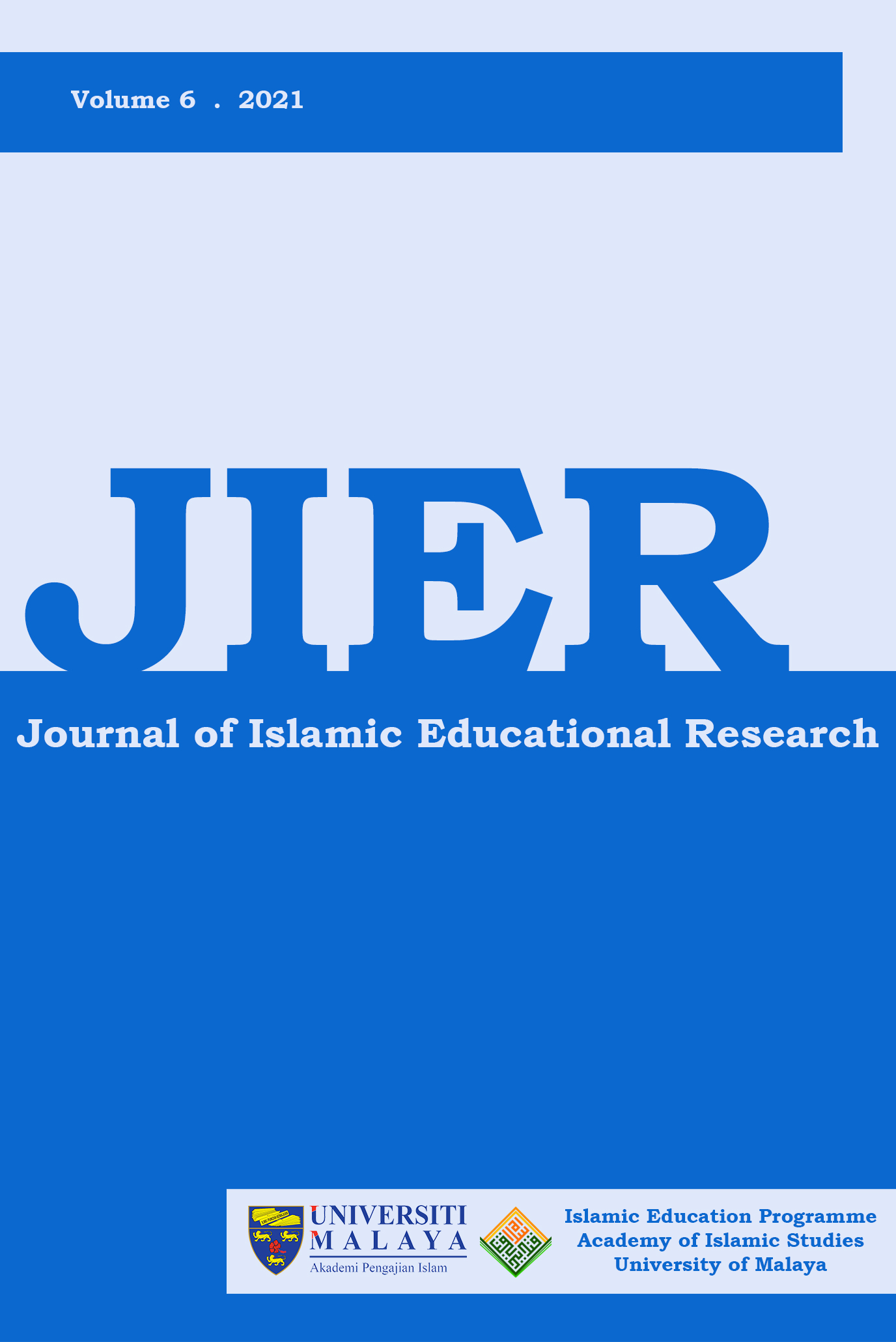EXPLORING THE CHALLENGES OF SUSTAINING QUR’ANIC MEMORIZATION: A CASE STUDY
DOI:
https://doi.org/10.22452/jier.vol6no2021.1Keywords:
Hifz, Qur’anic Memorization, Al-Qur’an Education, Islamic EducationAbstract
This study explored the challenges of sustaining Qur’anic memorization among graduated secondary school students. The study’s objectives are to explore the challenges of sustaining Qur’anic memorization among the graduated secondary school students; to explain the challenges faced by them in sustaining Quranic memorization; and to investigate the ways they overcome the challenges in sustaining Qur’anic memorization. Semi-structured interviews with 8 huffaz secondary school graduates were conducted to collect the data. The findings show that there are 12 challenges of sustaining Qur’anic memorization involve forgetfulness, environmental, mixed up verses, time management, influence from others, emotion, menstruation, lack of discipline, difficult to remember, unfamiliar with certain words, entertainment, and other activities. They overcome the challenges by referring back to the Qur’an, ask someone to examine, recall, relate to real-life situation, join religious classes, befriending people that motivate, encouragement from family, rememorize and reflect, listening to Qur’anic recitation, do spiritual activities, aware of priority, forgetfulness as inspiration, tawakkal and fixed schedule for memorization. Using these methods help them in memorizing Qur’an while dealing with these challenges, which they manage to overcome them.
Downloads
Downloads
Published
How to Cite
Issue
Section
License
The published manuscript shall be a copyright of the Islamic Education Programme, Academy of Islamic Studies, University of Malaya, Kuala Lumpur, Malaysia. The published manuscript would not represent the stand or opinion of the Advisory Board, Editorial Board, Co-Editorial Board and the Management Team of Journal of Islamic Educational Research (JIER), or the Islamic Education Programme, Academy of Islamic Studies, University of Malaya.
Note: This is an open access journal which means that all content is freely available without charge to the user or his/her institution. Users are allowed to read, download, copy, distribute, print, search, or link to the full texts of the articles in this journal without asking prior permission from the publisher or the author. This is in accordance with the BOAI definition of open access.






